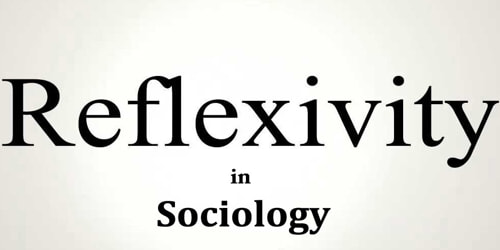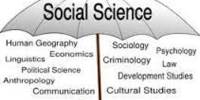Reflexivity in Sociology
Reflexivity is the theory that a two-way feedback loop exists in which investors’ perceptions affect that environment, which in turn changes investor perceptions. It is a term with rather different meanings in different contexts: in general, it means ‘reflecting’ and specifically, as part of the social research, reflexivity is the process by which the researcher reflects upon the data collection and interpretation process.
Reflexivity refers to circular relationships between cause and effect. A reflexive relationship is bidirectional with both the cause and the effect affecting one another in a situation that does not render both functions causes and effects. In sociology, reflexivity, therefore, comes to mean an act of self-reference where examination or action “bends back on”, refers to, and affects the entity instigating the action or examination.
In social theory, reflexivity may occur when theories in a discipline should apply equally forcefully to the discipline itself, for example in the case that the theories of knowledge construction in the field of sociology of scientific knowledge should apply equally to knowledge construction by sociology of scientific knowledge practitioners, or when the subject matter of a discipline should apply equally well to the individual practitioners of that discipline, for example when psychological theory should explain the psychological mental processes of psychologists.
Reflexivity is, therefore, a methodological issue in the social sciences analogous to the observer effect. Within that part of recent sociology of science that has been called the strong programmed, reflexivity is suggested as a methodological norm or principle, meaning that a full theoretical account of the social construction of, say, scientific, religious or ethical knowledge systems, should itself be explainable by the same principles and methods as used for accounting for these other knowledge systems.
A low level of reflexivity would result in an individual shaped largely by their environment (or ‘society’). A high level of social reflexivity would be defined by an individual shaping their own norms, tastes, politics, desires, and so on. This is similar to the notion of autonomy.
- At the simplest level, a relationship is reflexive if the relationship is self-referring (i.e. one part of the relational statement reflects the other), for example, ‘the tower is as tall as itself’. Here ‘as tall as’ is reflexive.
- At a second level, reflexivity refers to the process of reflecting on rather than just reflecting. The former is an active process the latter passive.
- The third level of reflexivity operates at a simple philosophical level, that of the self-referring paradox of the type ‘this sentence is false’.
- A fourth level is a more complex philosophical one, namely the idea of reflexivity as self-awareness (i.e. reflecting back on oneself). The problem of possibility and implications of self-awareness is as old as philosophy.
- On a fifth level reflexivity is used as a means of critique. Such critique adopts an approach that tries to show that the theory presented in a text itself reflexively denies the possibility of the theory.
- On a fifth level reflexivity is used as a means of critique. Such critique adopts an approach that tries to show that the theory presented in a text itself reflexively denies the possibility of the theory.
Margaret Archer has written extensively on laypeople’s reflexivity. For her, human reflexivity is a mediating mechanism between structural properties, or the individual’s social context, and action, or the individual’s ultimate concerns. Reflexive activity, according to Archer, increasingly takes the place of habitual action in late modernity since routine forms prove ineffective in dealing with the complexity of modern life trajectories.
While Archer emphasizes the agentic aspect of reflexivity, reflexive orientations can themselves be seen as being socially and temporally embedded. For example, Elster points out that reflexivity cannot be understood without taking into account the fact that it draws on background configurations (e.g., shared meanings, as well as past social engagement and lived experiences of the social world) to be operative.
Information Source:
















